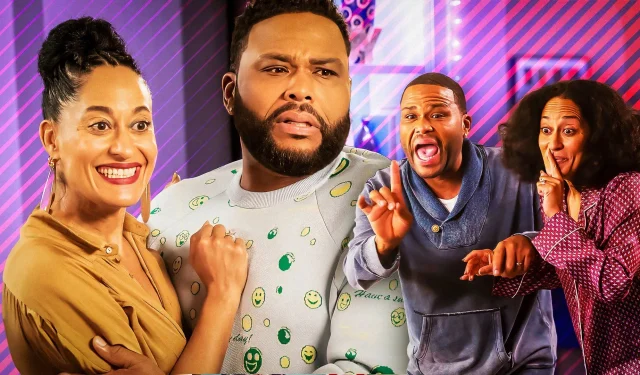
Black-ish, a critically acclaimed sitcom, delves into the dynamics of an upper-middle-class Black family navigating life in a primarily white neighborhood. The show’s protagonist, Andre “Dre”Johnson (Anthony Anderson), raised in Compton, grapples with concerns that his children are becoming disconnected from their Black heritage. While the series is anchored in humor, it adeptly explores profound themes surrounding Black identity, effectively addressing significant societal issues through its storytelling.
The narrative often contrasts Dre’s viewpoint with that of his wife, parents, children, and colleagues, allowing for multifaceted discussions on race, family, and political matters. The show’s comedic format becomes particularly poignant during episodes that tackle heavyweight subjects such as police brutality, colorism, and women’s health, lending even more gravity to these discussions. The skilled performances by the cast elevate both the comedic and emotional moments throughout the series.
10 Hope
Season 2, Episode 16
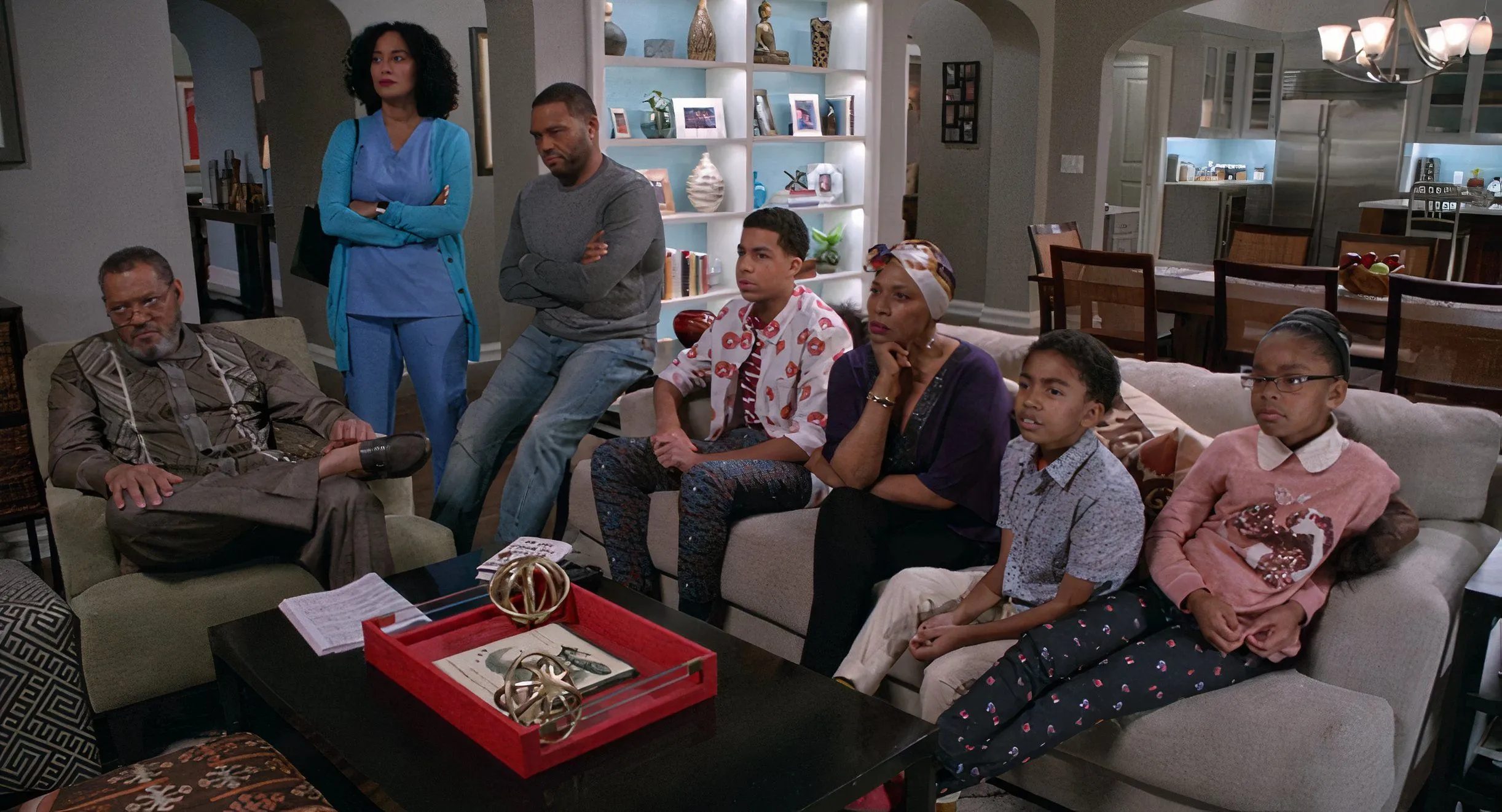
In this gripping episode, the Johnson family congregates to follow a gripping court case surrounding police brutality against a Black teenager. The irony plays out as they struggle to remember details, given the overwhelming number of similar incidents. Dre’s wife, Dr. Rainbow “Bow”Johnson (Tracee Ellis Ross), embodies optimism, insisting on the integrity of the justice system and attempting to shield their younger children from the grim reality. However, the mood shifts dramatically when the accused officer is acquitted.
As riots erupt across Los Angeles, Junior (Marcus Scribner) expresses a desire to participate, prompting his parents’ disapproval. Dre’s mother, Ruby (Jenifer Lewis), acts humorously protective as she prepares their home for potential unrest, drawing from her past experiences. A pivotal moment emerges when Dre’s daughter, Zoey (Yara Shahidi), tearfully confronts her sense of hopelessness. This realization catalyzes a decision for the family to attend the protest together, bridging their differing perspectives.
9 Being Bow-Racial
Season 3, Episode 8
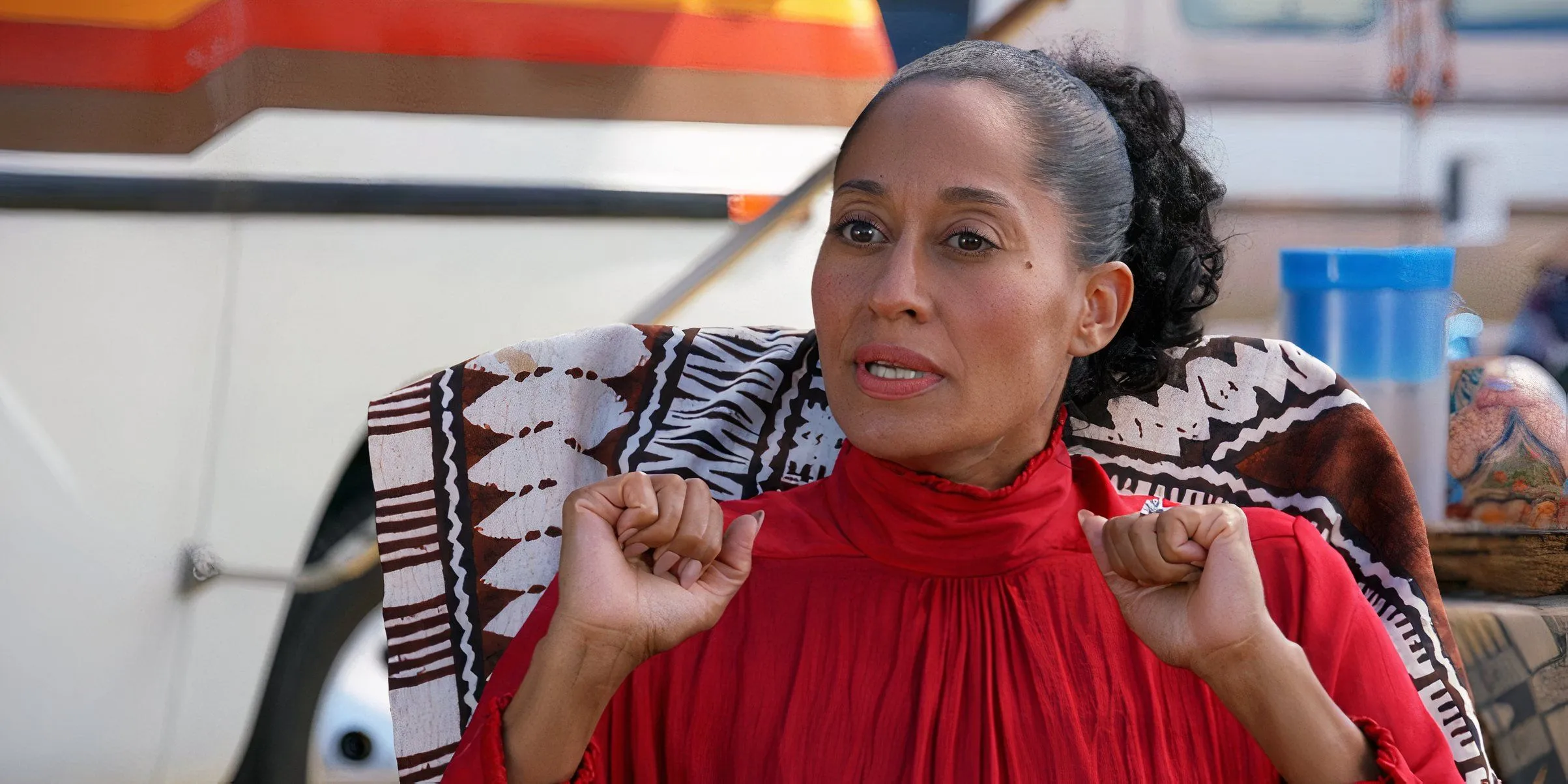
This episode shifts focus to Bow’s perspective, showcasing her biracial identity and the challenges that accompany it. When Junior introduces his first girlfriend, who happens to be white, Bow grapples with unresolved feelings about her racial identity. A meaningful conversation with her brother, Johan (Daveed Diggs), encourages her to reflect on her experiences of code-switching and societal expectations of race.
Bow’s journey of self-definition resonates powerfully, illustrating the nuanced discourse on race and identity. This transformative exploration lays groundwork for further character development in the prequel series, Mixed-ish, highlighting Black-ish’s ability to candidly address complex topics with humor and empathy.
8 Lemons
Season 3, Episode 12
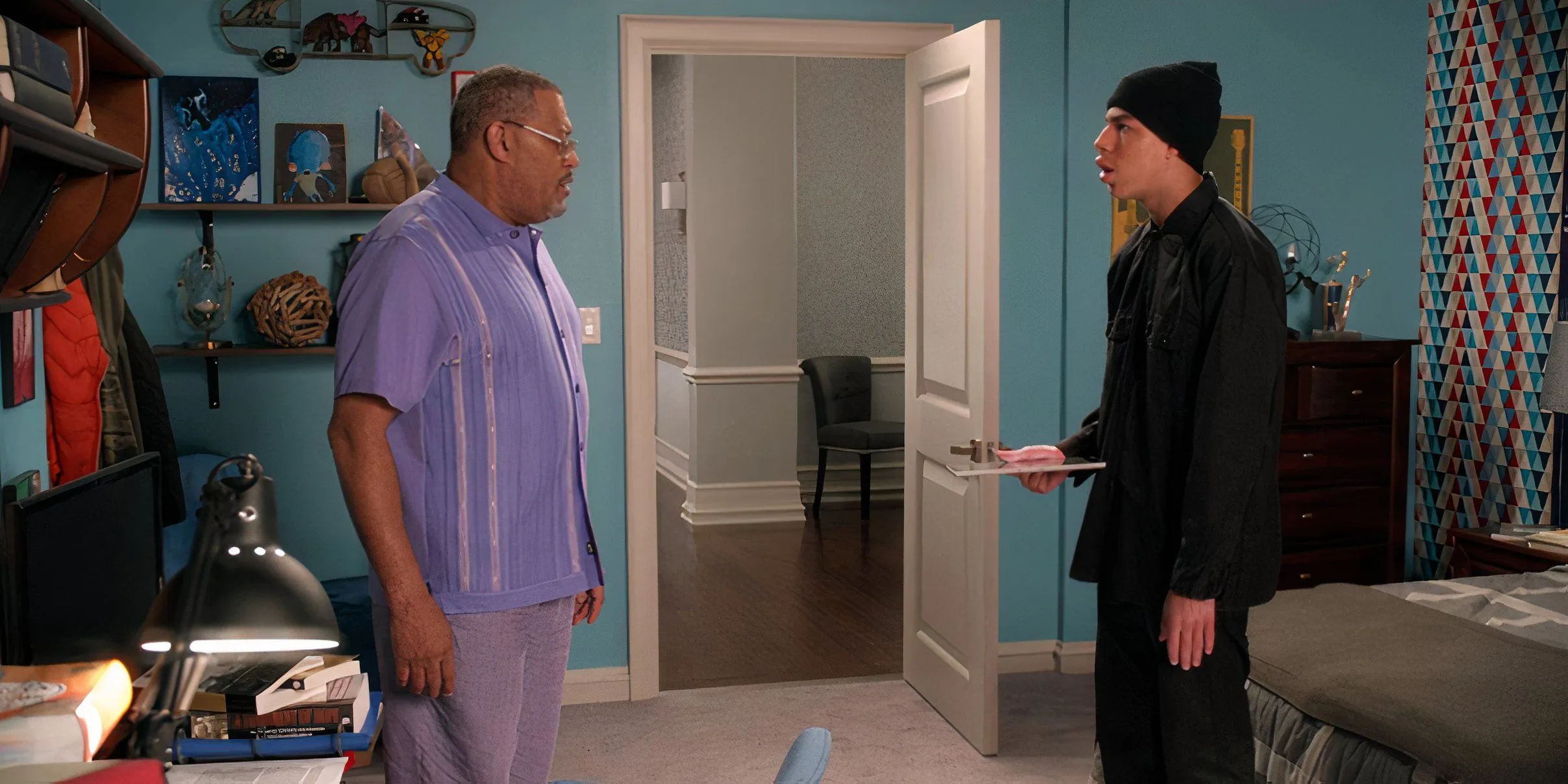
Following the tumultuous 2016 election, Dre’s colleagues seek someone to blame, which results in intense scrutiny of Dre’s attitude. His poignant monologue, layered over Billie Holiday’s haunting “Strange Fruit,”critiques the historical context of disillusionment felt by Black Americans while empathizing with the fears of his more privileged coworkers grappling with newfound uncertainty.
Furthermore, the episode thoughtfully contextualizes Martin Luther King Jr.’s “I Have a Dream”speech, guided by Pops (Laurence Fishburne). He provides insight into the speech’s true intention as a rallying cry for justice rather than mere peace, fostering a deeper understanding of its significance within the framework of Black history.
7 Sprinkles
Season 3, Episode 24
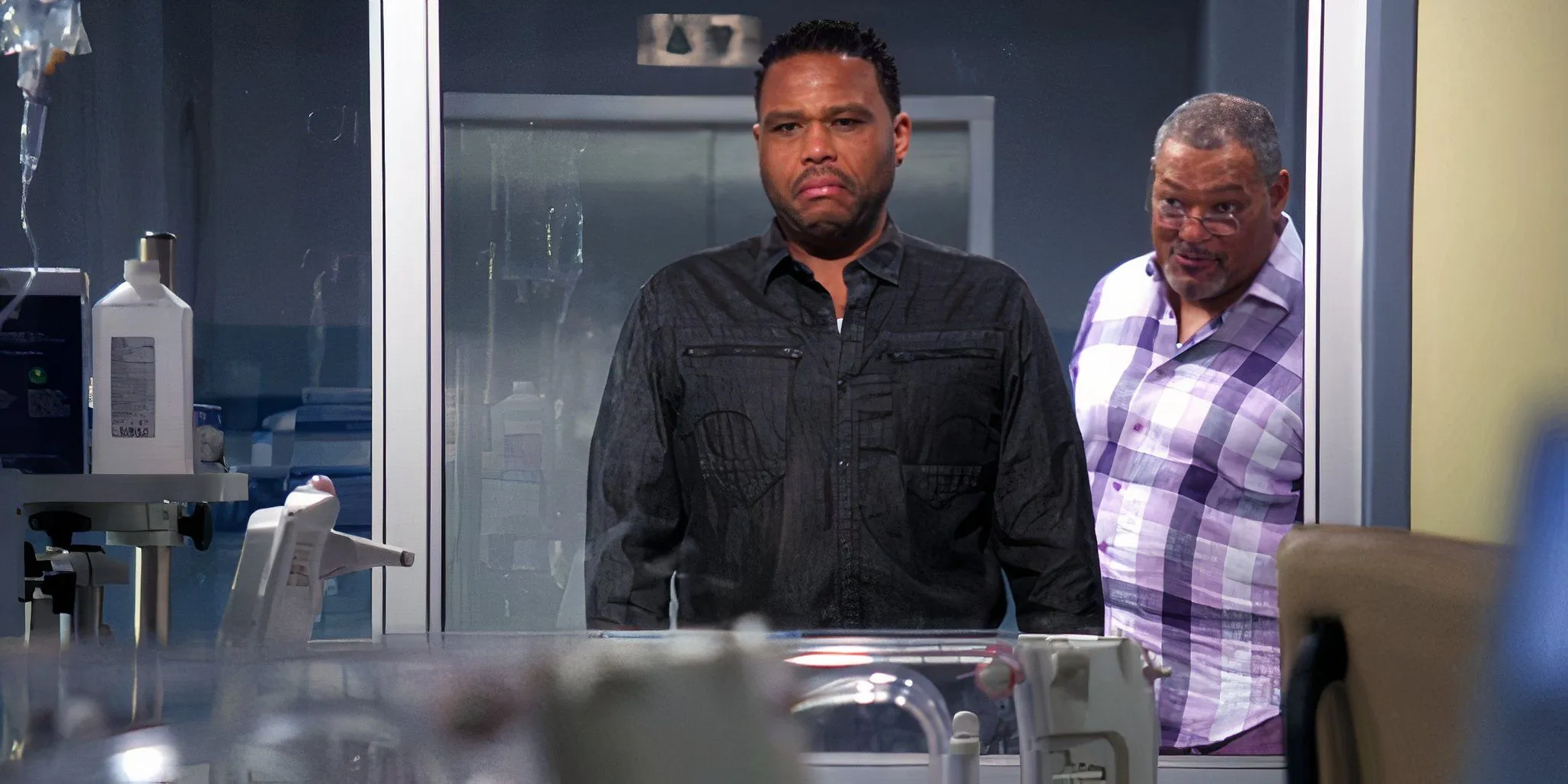
As Bow faces complications during her pregnancy leading to an emergency C-section, the episode contrasts her dual roles as a mother and a physician. Initially trying to maintain composure, Bow ultimately succumbs to the emotional weight of the situation, allowing Dre a rare opportunity to be her pillar of support.
This medical crisis prompts Ruby and Pops to step in and display their loving support for Bow. Zack, who is usually sharp-tongued with Bow, transforms into a nurturing figure in this moment of vulnerability. Pops provides sage advice to Dre about embracing the potential joys and sorrows of new parenthood, underscoring the show’s emphasis on familial bonding.
6 Juneteenth
Season 4, Episode 1
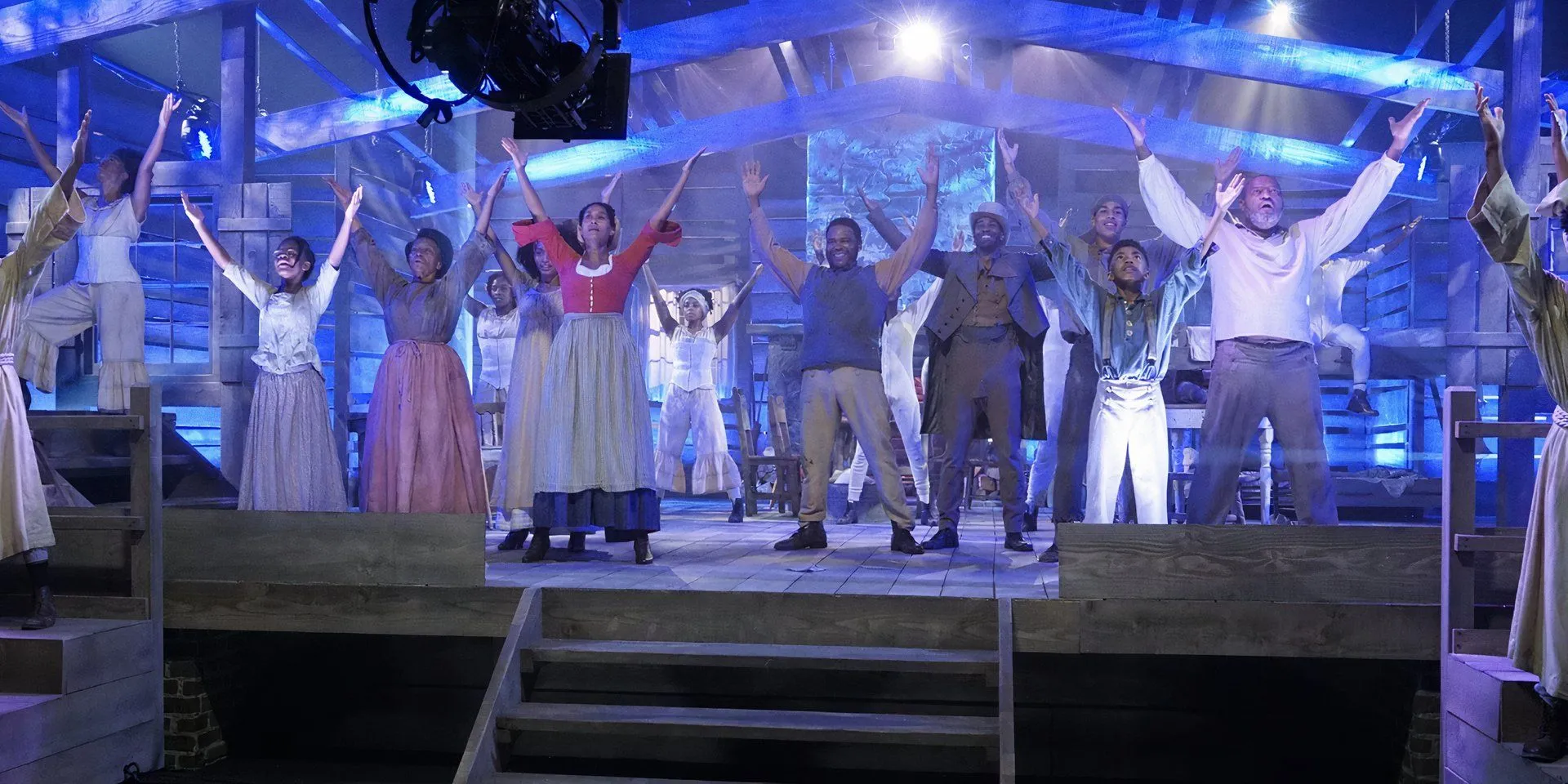
Inspired by the movement surrounding Hamilton, Black-ish introduces “Juneteenth,”illuminating the historical significance of this holiday through vibrant musical elements. Dre advocates for Juneteenth to be recognized as a national day of independence, presenting a powerful argument that the end of slavery offers a more genuine celebration of freedom than July 4.
The episode’s innovative format includes animated sequences, effectively illustrating the bittersweet reality that freedom for former slaves often did not equate to equality. In reclaiming Juneteenth’s importance, Black-ish critiques mainstream American narratives that frequently gloss over uncomfortable truths about history.
5 Mother Nature
Season 4, Episode 2
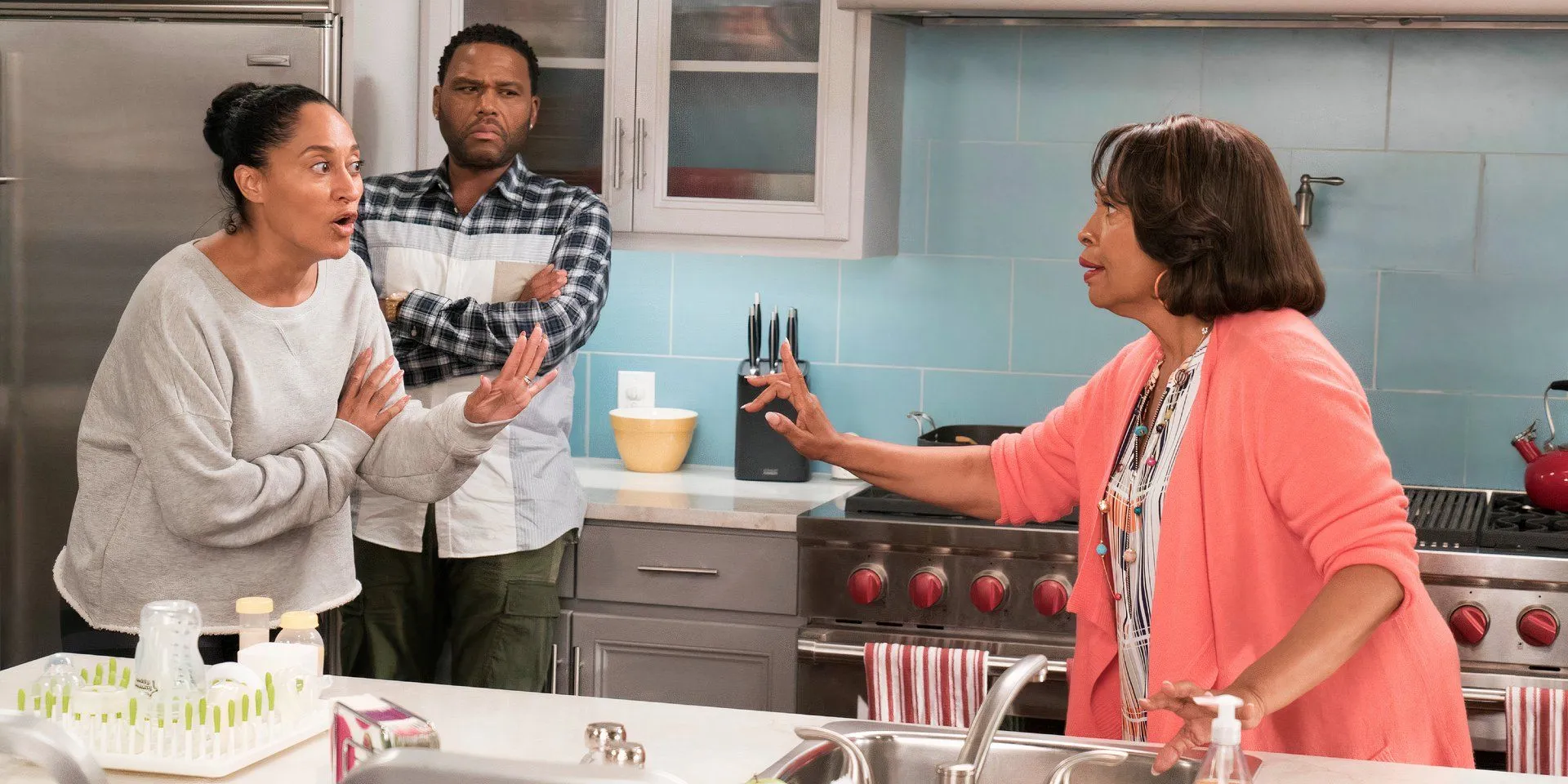
In a rare television portrayal of postpartum depression, Bow confronts Ruby’s critical comments about her milk quality in light of her medications. Overwhelmed, Bow asserts her needs, telling Ruby to leave their home to facilitate her healing. Ruby eventually offers an apology, recognizing her transgressions and admitting her own vulnerabilities.
As Dre navigates his role as a supportive father during Bow’s struggle, their older children become aware of her challenges, adding layers to the narrative. The episode poignantly illustrates how the Johnson family rallies around each other in times of crisis, showcasing a powerful portrayal of love and support.
4 Fifty-Three Percent, Blue Valentine, Collateral Damage, Dream Home
Season 4, Episodes 20-23
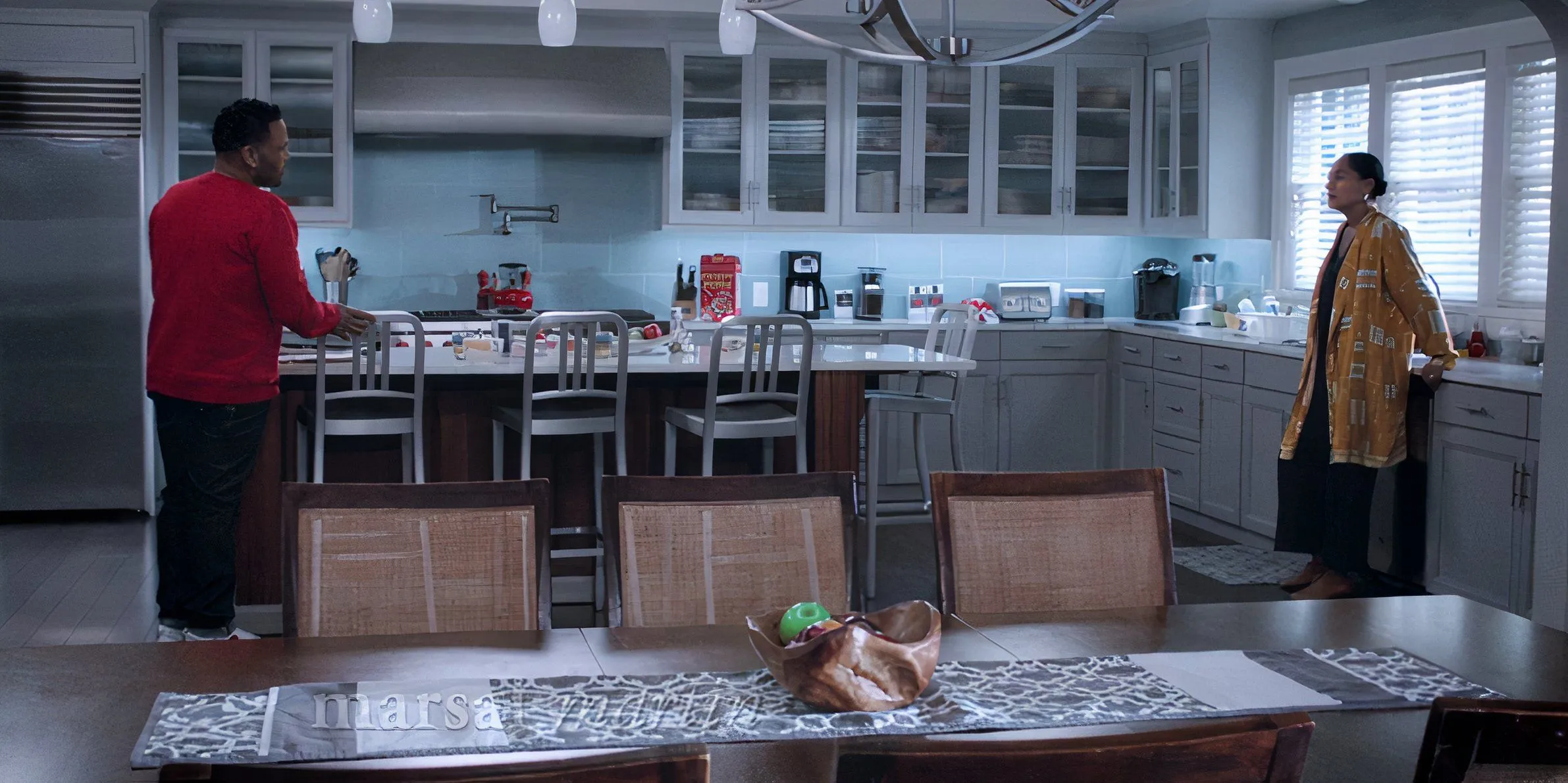
Amidst disconnect and strain, Dre and Bow face marriage troubles showcased through a four-episode arc. They experience fleeting moments of joy, such as their baby’s first steps in “Fifty-Three Percent,”but instead of a quick resolution, the series delves deeply into the intricate layers of their relationship decline.
“Blue Valentine”features striking visuals juxtaposing current tensions in the kitchen with memories of happier times. In the concluding episode, “Dream Home,”the couple begins to navigate their separation, and the familial context offers a heartfelt setting for potential reconciliation amid shared loss.
3 Black Like Us
Season 5, Episode 10
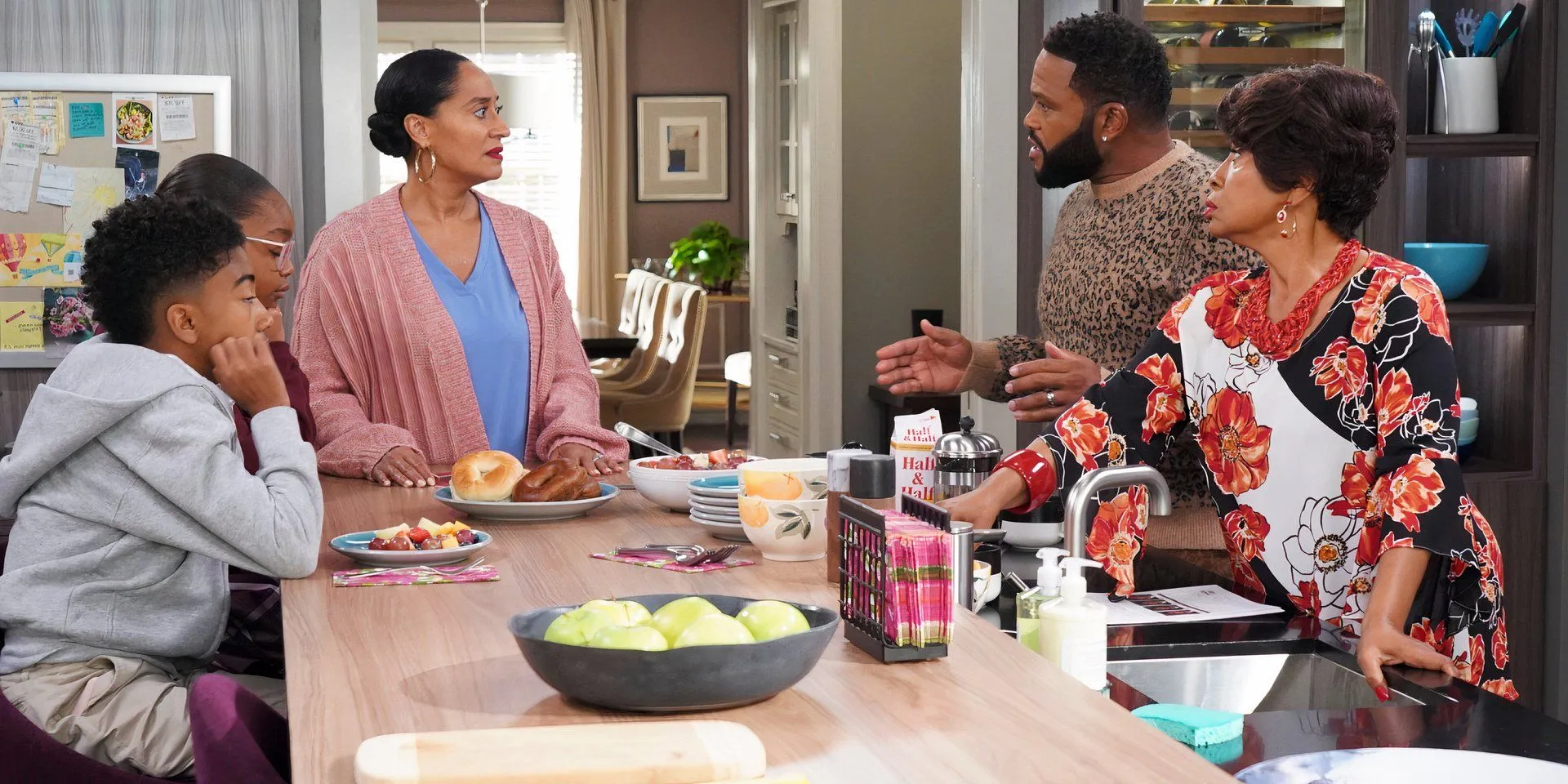
Diane (Marsai Martin) faces colorism after her class photo fails to capture her as prominently as her lighter-skinned peers. Black-ish navigates the complex terrain of colorism and its effects within the family unit, providing valuable perspectives. Dre and Ruby’s experiences starkly contrast with Bow and Junior’s, unveiling the multifaceted nature of inequity in society.
Ruby’s compelling story from her past sheds light on the challenges faced by those with darker skin, fostering a dialogue about the pervasive nature of colorism. The episode empowers Diane to advocate for herself, emphasizing the responsibility of institutions to do better, while maintaining the show’s signature wit.
2 Hero Pizza
Season 7, Episode 3
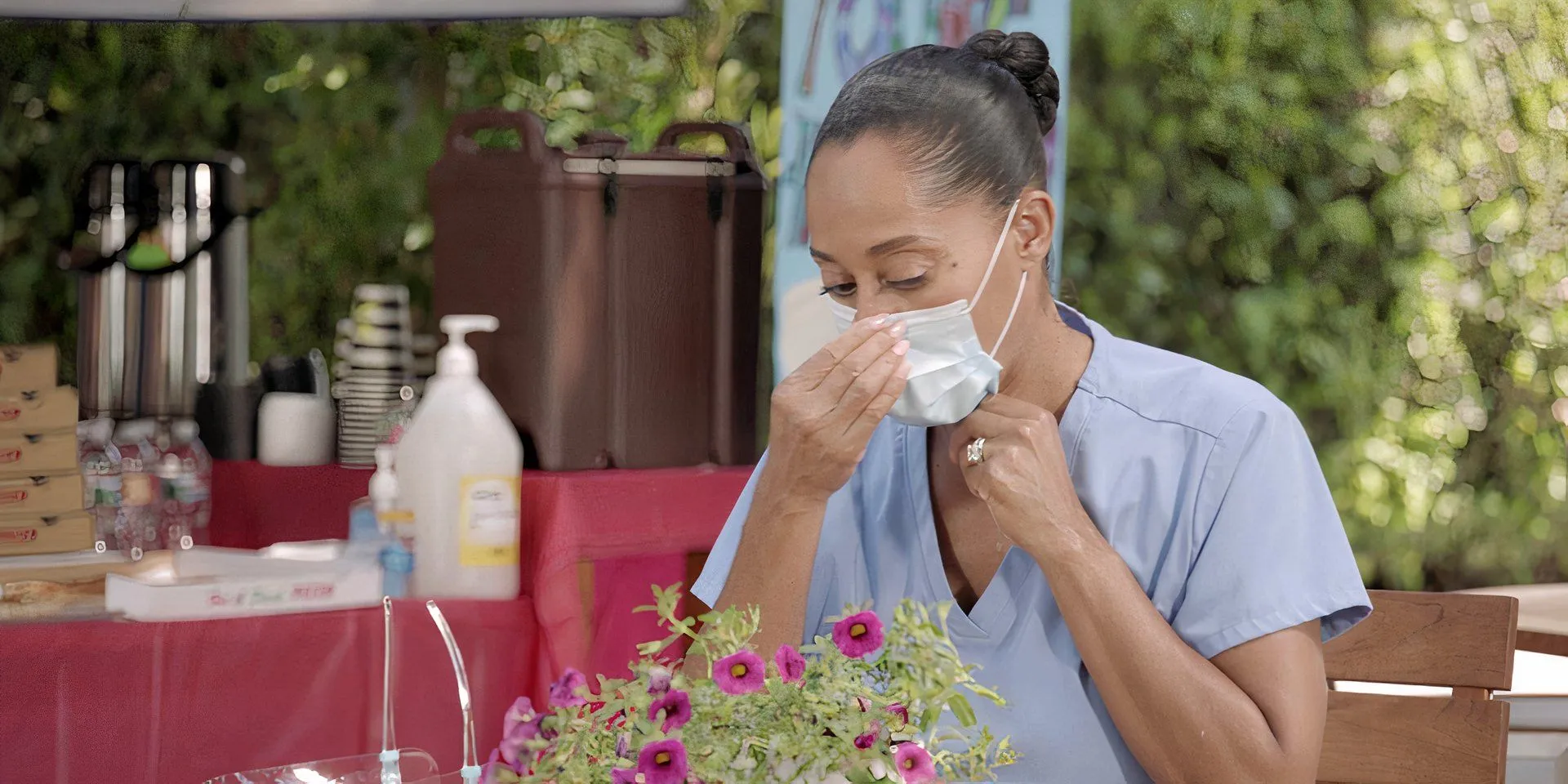
“Hero Pizza”vividly encapsulates experiences during the COVID-19 pandemic. As an essential worker, Bow faces manifold challenges while maintaining her commitment to healthcare. Steeped in the realities of the pandemic, the episode highlights the struggles and personal conflicts arising from family dynamics and public health responsibilities.
Dre, who feels disconnected from the urgency of the moment, grapples with his own sense of contribution, illustrating the emotional toll on individuals navigating entirely different spaces during the pandemic. The episode serves as a reflective piece on societal responsibilities during chaotic times.
1 If A Black Man Cries In The Wood
Season 8, Episode 12
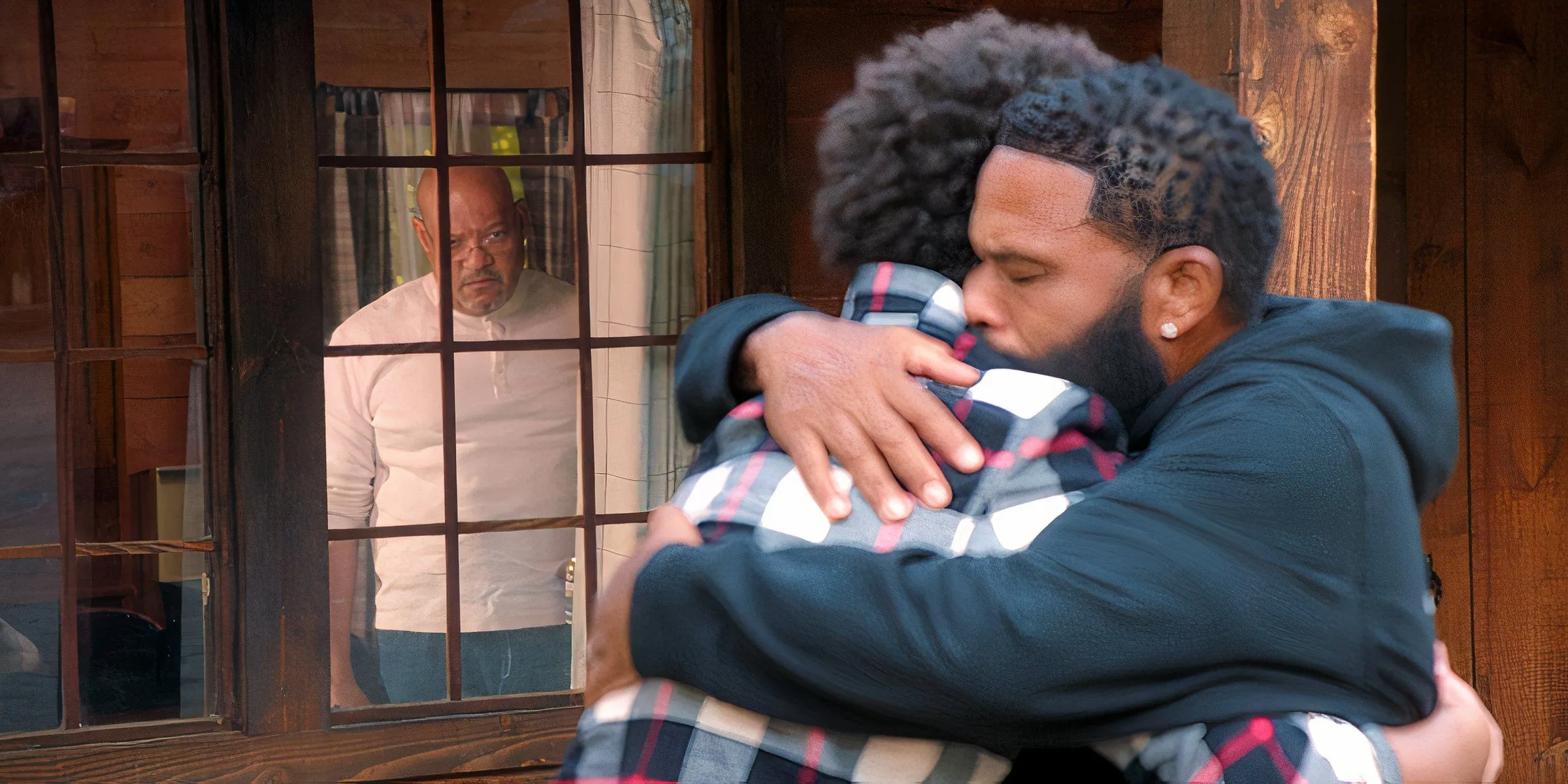
In a heartfelt conclusion to the series, Pops takes Dre and Junior on a hunting trip, creating a sacred space for the three Black men from different generations to explore their relationships with vulnerability. While Dre contemplates the safety of expressing emotions, Junior advocates for openness, leading to meaningful exchanges.
This emotional journey culminates around the campfire as Pops reflects on his own upbringing, facilitating a poignant moment of connection between the three. The raw performances by Fishburne, Anderson, and Scribner encapsulate the depth of familial love and support, creating a resonant farewell for Black-ish.
Leave a Reply